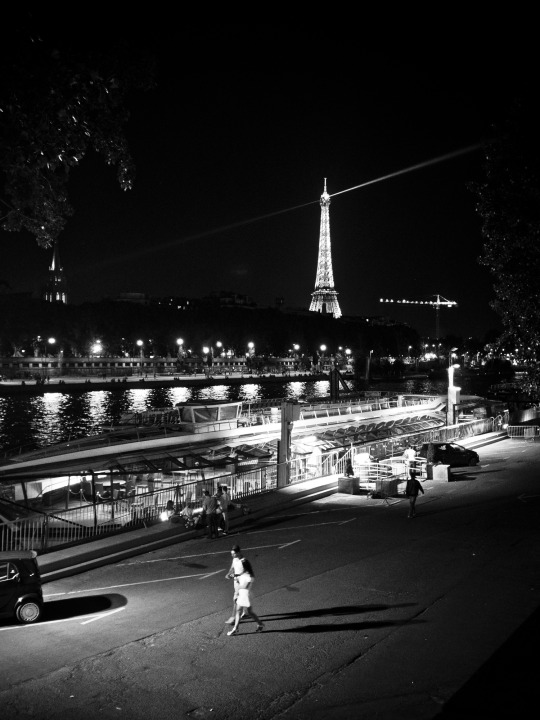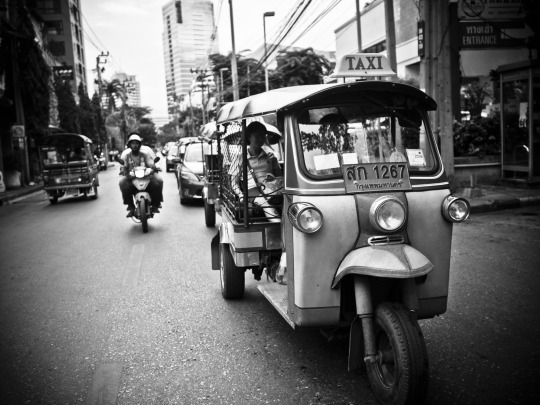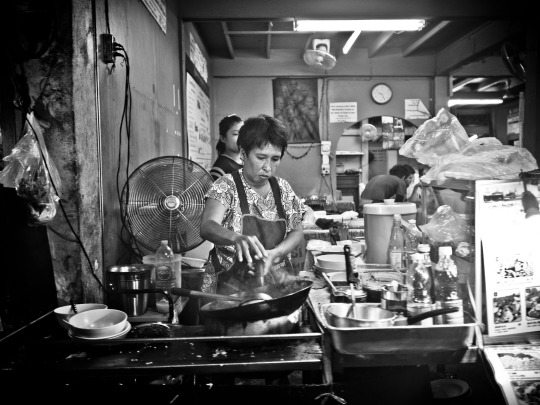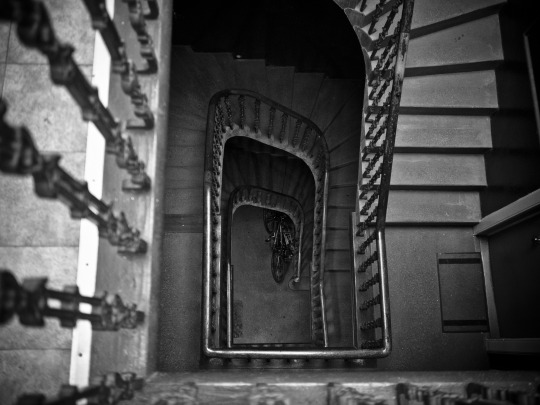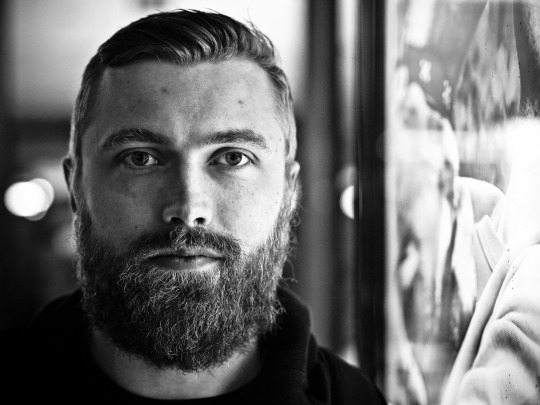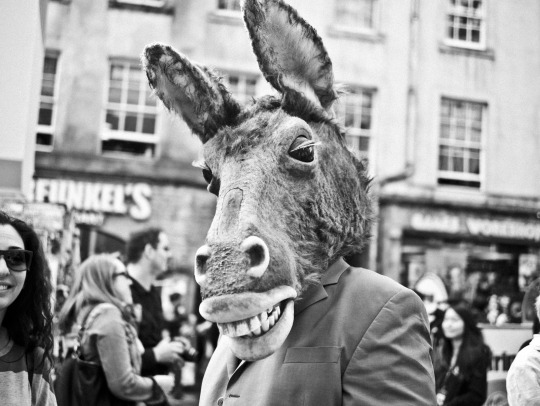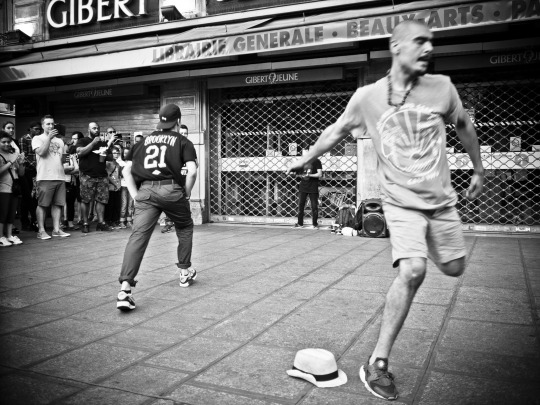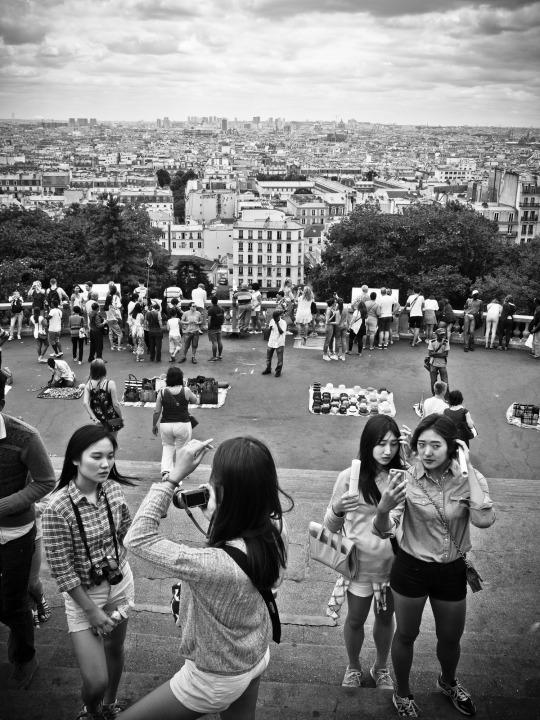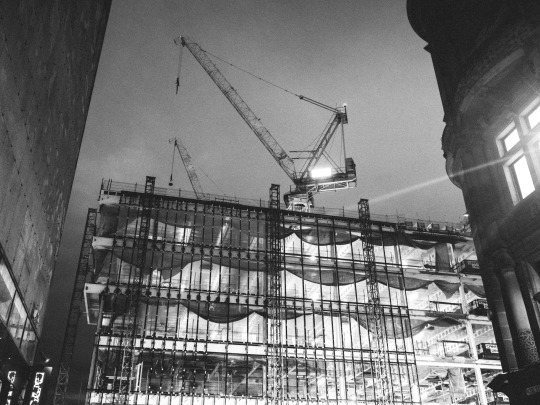Mike Andrews
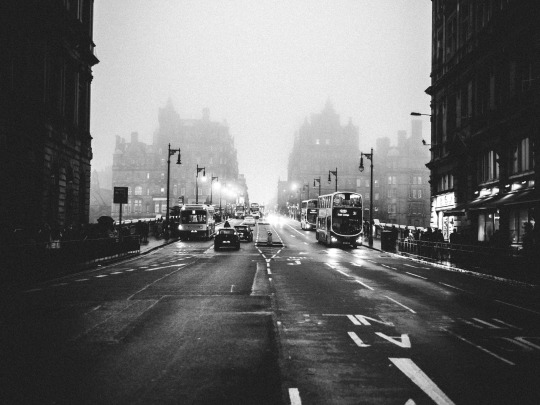
What makes black and white photography so important to you?
I felt an intrinsic link to black and white photography from a young age, stemming from an exhibition of Henri Cartier-Bresson’s work that appeared in Edinburgh’s Gallery of Modern Art. Like so many others, I was drawn to the aesthetic he created and how his use of monochrome allowed the viewer to focus on tiny details within the image, or the purely human element, without distraction.
There’s a transgressive quality to a gritty, contrasty black and white shot that colour cannot match. Indeed, in a colourful and vibrant world, reducing an image or scene back to monochrome can tell a much more blunt yet textural story. A Thai street food market, a Scottish arts festival or a busy Parisian neighbourhood can all be drawn into sharp focus through black and white photography, without the potential for unnecessary clutter within the image. Simultaneously, it’s unforgiving and requires composition skills to be on-point otherwise the end result can look like nothing interesting at all.
What inspires you to create photographs?
Taking time out of my working day (I work as a researcher for a not-for-profit organisation through the week) to shoot some street in and around Edinburgh is, for one, the ultimate stress reliever. Even just spending 30 minutes looking through the viewfinder of my camera to try and ‘nail the shot’ leaves me feeling energised and clear headed.
Also, the idea of continual improvement is central to my craft. I very much see every session with my camera as an opportunity to better what I did the day before. Whether I achieve this is actually not the point – it’s about putting in the effort and improving my overall skillset with the camera. I just spend every day trying to make one image as good as Josef Koudelka’s work – inspiration enough, in a way, even if I never get there.
Finally though, I’m inspired by the people and events around me. Sometimes this is my wife, sometimes it’s my friends, sometimes my parents, and sometimes utterly mundane events which, without my drive to make a great image, would be totally boring. Making something out of sheer boredom has to be one of life’s little pleasures!
Why is black and white photography so important to our future in the art world?
This is an interesting question because I don’t consider myself any form of expert on black and white photography, never mind art as a wider concept. However, in simple terms I think black and white photography remains one of the most direct ways to convey the best and worst of the world we live in. From stunning monochrome still life photos of plants and flowers to horrific images of war torn countries, black and white always has an ability to cut through and speak straight to our innermost feelings. All this, despite ‘missing’ colour. I think that’s pretty amazing.
